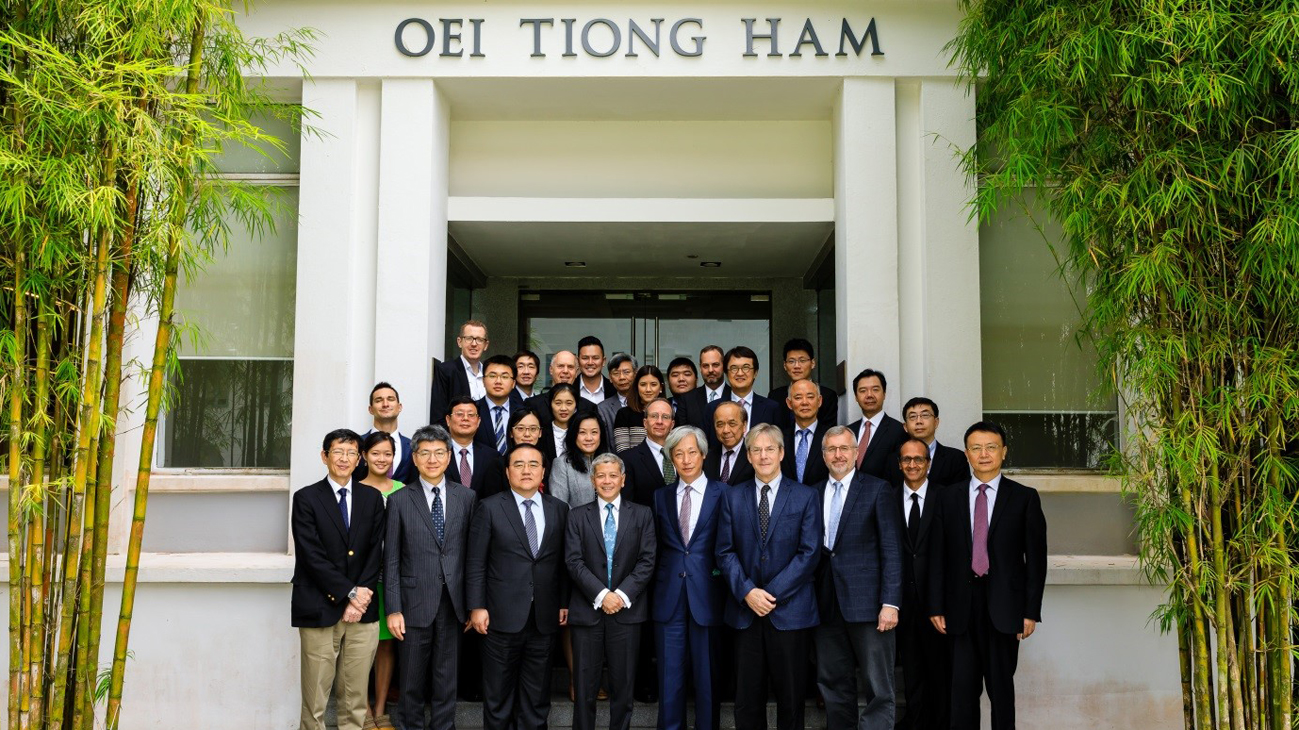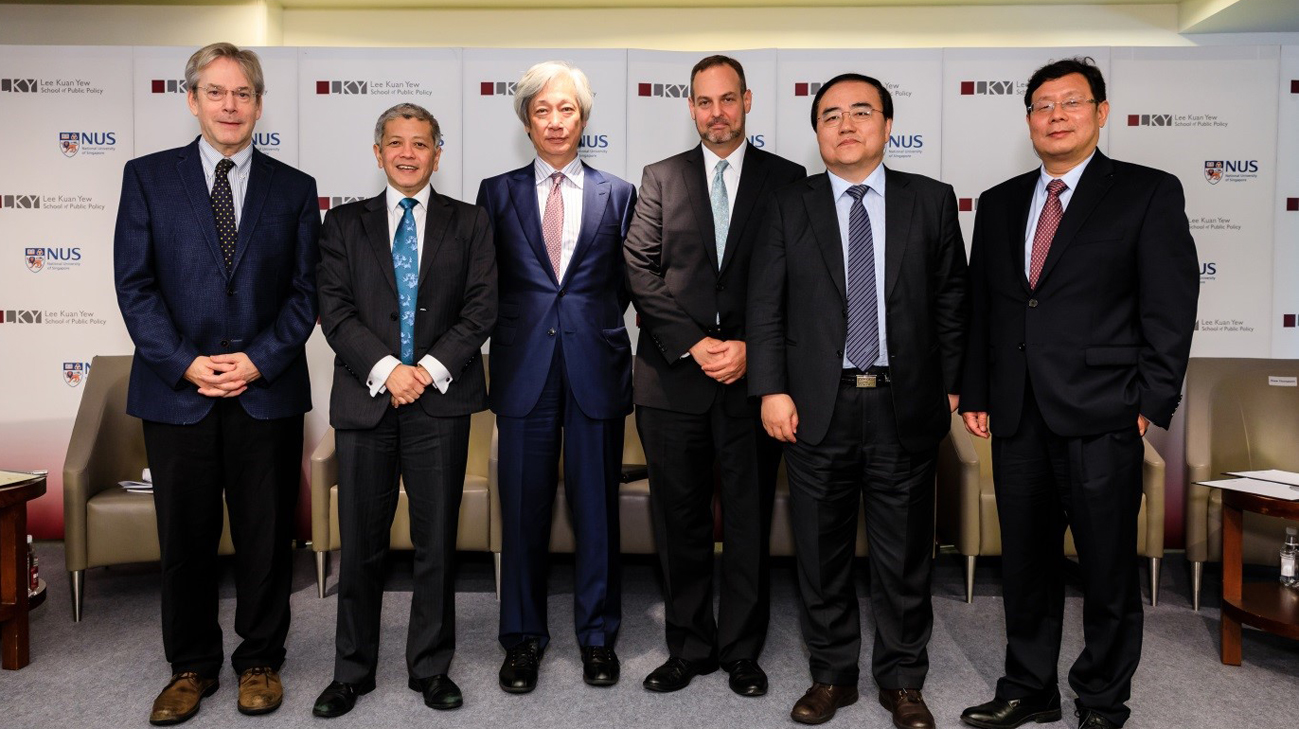10th Five University Conference 2018
| Date: | Friday and Saturday, December 7-8 2018 |
|---|---|
| Venue: | Lee Kuan Yew School of Public Policy, National University of Singapore |
| Subject: | Prospects for Peace and Stability in the Asia-Pacific Region |
| Hosted by: | Lee Kuan Yew School of Public Policy, National University of Singapore |

Friday, December 7, 2018
PROGRAM
09:15-11:00: Public Panel Discussion on
“Prospects for Denuclearisation and Peace on the Korean Peninsula”
Theme: Following the Trump-Kim summit in Singapore, what has been the progress of denuclearisation talks? What are American, Chinese, South Korean, and Japanese views of the progress thus far? What are the remaining obstacles? How do we overcome them? What are the prospects for peace and reunification on the Korean Peninsula?
Moderator: Danny Quah
(LKYSPP, National University of Singapore)
Speakers: Kiichi Fujiwara (The University of Tokyo)
G. John Ikenberry(Princeton University)
Kim Sung-han(Korea University)
Drew Thompson(LKYSPP, National University of Singapore)
Zhang Qingmin (Peking University)
11:00-11:30 Coffee break/Group photo session
11:30-13:00: Panel 2.
Regional Connectivity Schemes and What they mean for Asia’s Transformation
Theme: China, Japan, and India have proposed different connectivity plans for Asia. What are these plans? Do they compete with each other? Or is there room for cooperation between these countries to bring about enhanced connectivity in the region? What are the strategic implications of these plans for the region? How do smaller countries in the region view these various schemes?
Moderator: Jia Qingguo (Peking University)
Speakers: Speakers
Heng Yee-Kuang (The University of Tokyo)
Selina Ho(LKYSPP, National University of Singapore)
Lee Jae-Seung (Korea University)
Zhai Kun(Peking University)
13:00-14:30 Lunch
14:30-16:00: Panel 3. Trade Wars and East Asian Security
Theme: What are the drivers of US trade policy towards China? Is the US attempting to “delink” from the Chinese economy, “contain” China, or “restructure” Chinese economic practices? What are the implications of the trade war for security and stability in the Asia-Pacific?
Moderator:
Kiichi Fujiwara(The University of Tokyo)
Speakers:
Thomas J. Christensen(Columbia University)
Dong Zhaohua(Peking University)
Park Sung-Hoon(Korea University)
Danny Quah(LKYSPP, National University of Singapore)
Akio Takahara(The University of Tokyo)

Saturday, December 8, 2018
PROGRAM
09:30-11:00 Panel 4.
The Implication of a “Free and Open Indo-Pacific” for Great Power Relations
Theme: What is the definition of a “Free and Open Indo-Pacific”? How do regional countries view the concept? Will it work? What are the implications for security in the region? What is its impact on great power relations in the Asia-Pacific?
Moderator: Kim Sung-han(Korea University)
Speakers: Kanti Prasad Bajpai (LKYSPP, National University of Singapore)
Michael Mastanduno (Dartmouth College)
Hideaki Shiroyama (The University of Tokyo)
Zhang Xiaoming (Peking University)
11:00-11:30 Coffee break
11:30-13:00 Panel 5. Competing Visions of World Order
Theme: How resilient is the liberal international order? Are we seeing its end? What are the other competing visions of world order? Is the international system likely to be bipolar or multipolar in the future? What are the key drivers of an emerging new world order? What does the new world order mean for smaller countries in the region?
Moderator: G. John Ikenberry (Princeton University)
Speakers:
Keisuke Iida (The University of Tokyo)
Khong Yuen Foong(LKYSPP, National University of Singapore)
Jia Qingguo (Peking University)
Soh Changrok (Korea University)
Peter Trubowitz (London School of Economics and Political Science)
13:00-14:00 Lunch
14:30-17:00 Graduate Students Session
Moderator:
Selina Ho (LKYSPP, National University of Singapore)
Speakers:
Meir Alkon (Princeton University)
Chen Zhengxun (Peking University)
Vindu Mai Chotani (The University of Tokyo)
Yi Chu (The University of Tokyo)
Liu Xiaowei (Peking University)
Tan Pengru (The University of Tokyo)
Audrye Wong (Princeton University)
